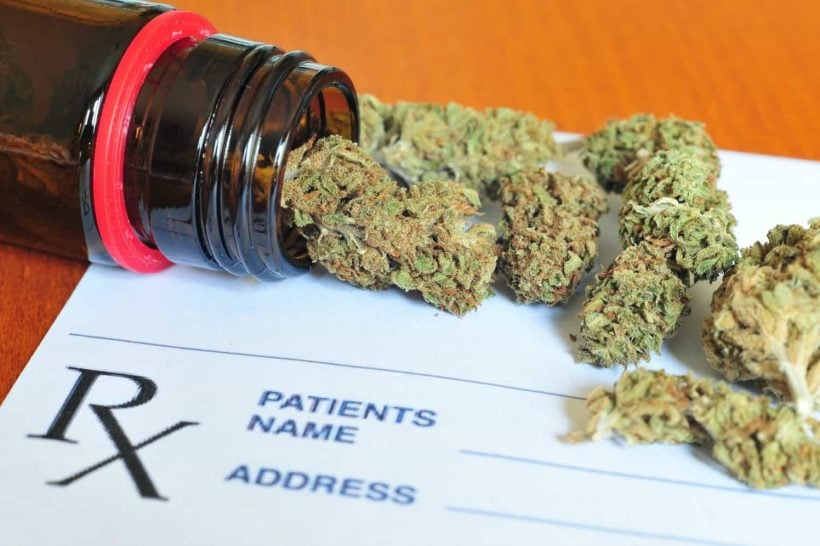Visit a Trusted Medical Cannabis Clinic for Professional Guidance
Visit a Trusted Medical Cannabis Clinic for Professional Guidance
Blog Article
The Recovery Power of Medical Cannabis: a Deep Dive Into Its Potential to Deal With Different Ailments
In current years, the discussion around the restorative potential of clinical marijuana has gotten substantial grip within the medical area. The evolving landscape of medical cannabis provides a complicated tapestry of possible benefits that warrant a closer assessment, dropping light on a realm of therapy possibilities that continue to intrigue professionals and individuals alike.
Healing Benefits of Clinical Marijuana
In the world of modern-day medication, the healing advantages of medical cannabis have become a promising opportunity for dealing with numerous wellness problems. The energetic substances in marijuana, called cannabinoids, interact with the body's endocannabinoid system to produce a series of effects that can be advantageous for individuals. Among the most widely known cannabinoids is cannabidiol (CBD), which has acquired focus for its possible anti-inflammatory, analgesic, and anxiolytic residential properties without the copyright impacts typically connected with tetrahydrocannabinol (THC)
Clinical marijuana has shown particular promise in alleviating chronic pain, spasticity connected with numerous sclerosis, nausea or vomiting and throwing up in chemotherapy people, and signs and symptoms of specific neurological disorders like epilepsy. Research is also exploring its possibility in taking care of mental health problems such as anxiety, clinical depression, and trauma. Furthermore, clinical cannabis is being explored for its anti-inflammatory residential or commercial properties, which can have effects for conditions like joint inflammation and inflammatory bowel disease.
Alleviating Persistent Pain With Marijuana
Having shown effectiveness in addressing a range of health problems, medical marijuana notably beams in its ability to give relief for people coming to grips with persistent pain. Persistent discomfort, characterized by its determination and debilitating nature, impacts millions worldwide, frequently substantially affecting lifestyle. Conventional discomfort management techniques, such as opioids, may feature unfavorable adverse effects and the risk of reliance, driving several individuals to look for alternative options.
Clinical cannabis has become a promising choice for persistent discomfort management due to its analgesic properties. The cannabinoids present in cannabis, especially tetrahydrocannabinol (THC) and cannabidiol (CBD), connect with the body's endocannabinoid system to aid manage pain perception and inflammation. Research studies have actually revealed that medical cannabis can efficiently relieve persistent discomfort associated with conditions like joint inflammation, fibromyalgia, multiple sclerosis, and neuropathy. Cannabis supplies a more all-natural and possibly more secure option to typical discomfort drugs for lasting usage (Medical Marijuana Doctor Clinton MS).

Handling Stress And Anxiety and Tension
Clinical cannabis presents a feasible alternative for individuals looking for relief from stress and anxiety and stress due to its prospective soothing results on the body and mind. By potentially influencing the launch of neurotransmitters and modulating anxiety feedback, medical cannabis shows assurance in providing a natural alternative for handling these problems.
Furthermore, unlike conventional anti-anxiety medicines that might feature undesirable negative effects or threat of dependence, clinical marijuana offers a potentially safer choice for individuals seeking to alleviate anxiousness and tension. However, it is important for people thinking about medical cannabis for these purposes to go right here seek advice from a doctor experienced regarding medical cannabis to ensure secure and effective use.
Marijuana for Neurological Conditions
Study has revealed promising potential in making use of cannabis for handling neurological disorders. Neurological conditions incorporate a variety of conditions affecting the brain, spine, and nerves, such as epilepsy, several sclerosis, Parkinson's disease, and Alzheimer's illness. Marijuana, with its active substances like THC and CBD, has demonstrated neuroprotective, anti-inflammatory, and antioxidant homes that can profit people with these conditions.

While even more professional tests are required to totally understand the efficacy and safety of cannabis for neurological disorders, first searchings for are encouraging and warrant further investigation into the therapeutic capacity of this plant for enhancing the lives of those impacted by such problems. - Medical Marijuana Dispensary near me
Potential of Cannabis in Cancer Treatment
The expanding horizon of clinical marijuana applications encompasses the capacity of leveraging its residential properties in cancer treatment, offering a brand-new opportunity of exploration in utilizing the therapeutic advantages of this plant for addressing intricate wellness difficulties. Cannabis reveals pledge in cancer therapy as a result of its possible to ease signs connected to the condition and its treatment, such as pain, nausea or vomiting, and free dental loss of cravings. Furthermore, cannabinoids, the energetic substances in cannabis, have actually demonstrated anti-tumor effects in preclinical studies, revealing their capacity in hindering the growth of cancer cells.
Moreover, marijuana may aid in managing the adverse effects of conventional cancer cells therapies like radiation treatment, potentially boosting individuals' lifestyle throughout treatment. While even more study is needed to totally understand the devices behind cannabis's prospective anti-cancer residential or commercial properties and its efficiency in different sorts of cancers, the initial searchings for suggest that clinical cannabis might play a useful role in the future of cancer therapy. As the exploration of cannabis in oncology proceeds, it holds assurance as a corresponding approach to traditional cancer cells therapies, offering clients a possibly reliable and well-tolerated option in their therapy routines.
Conclusion
Finally, medical marijuana has actually shown appealing capacity in dealing with a selection of ailments, including persistent pain, stress and anxiety, anxiety, neurological problems, and cancer. Its therapeutic advantages have actually been increasingly acknowledged by the clinical neighborhood, with recurring study highlighting its weblink effectiveness in handling these problems. As even more researches are performed, clinical marijuana might come to be an important treatment choice for individuals dealing with these incapacitating conditions.
In current years, the conversation around the restorative capacity of medical cannabis has acquired significant grip within the medical area. The advancing landscape of clinical cannabis offers an intricate tapestry of prospective advantages that require a closer examination, dropping light on a realm of treatment possibilities that continue to intrigue professionals and clients alike.

Report this page